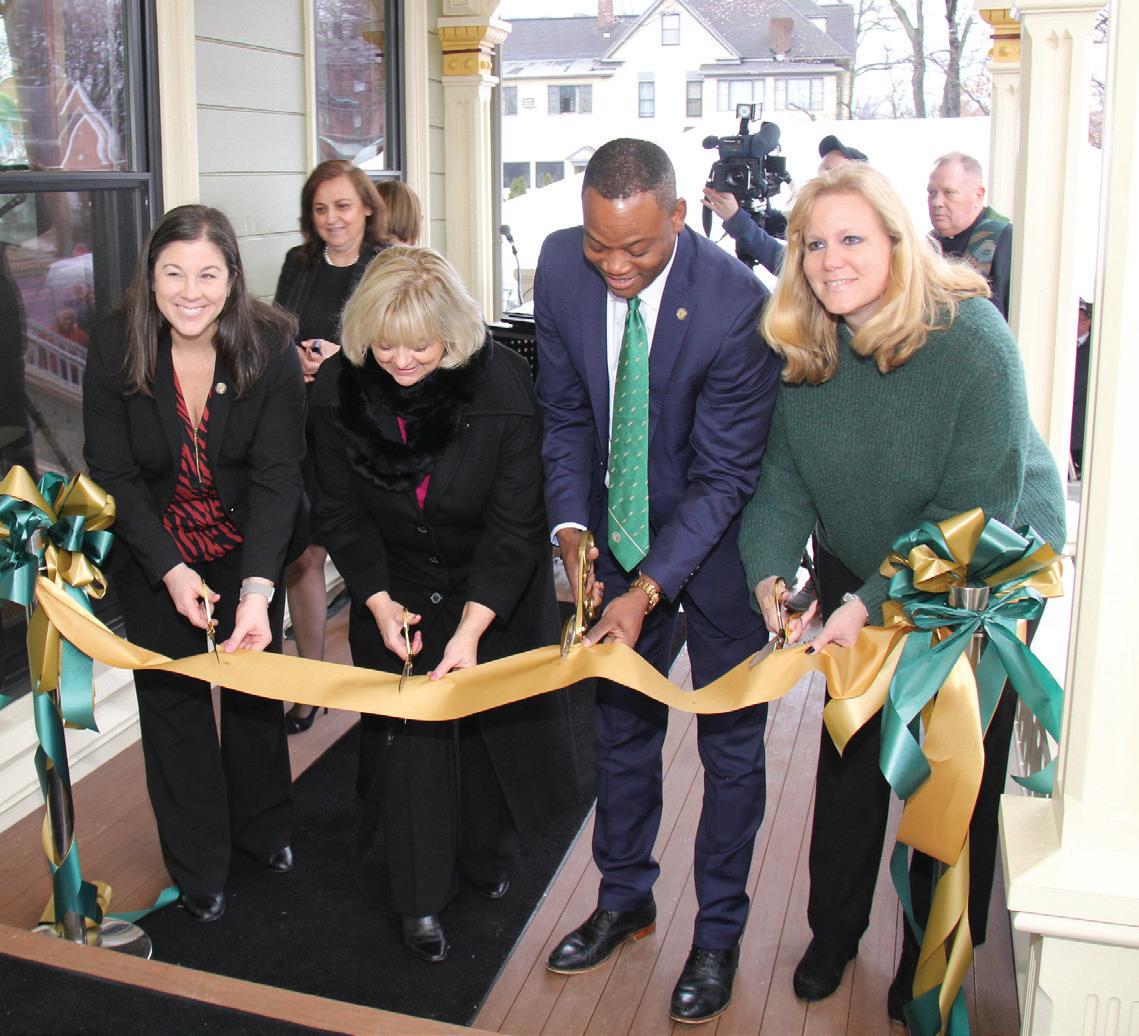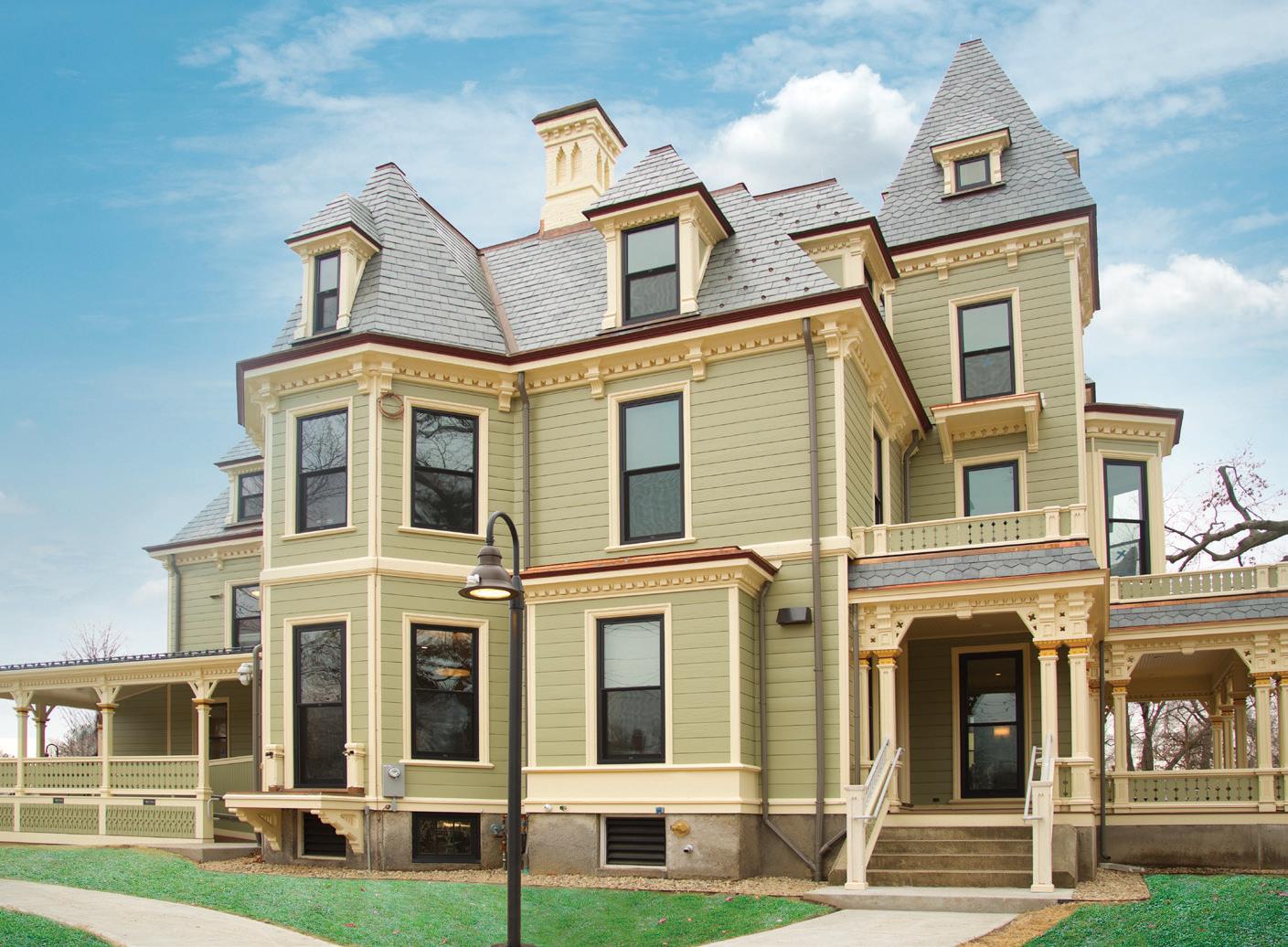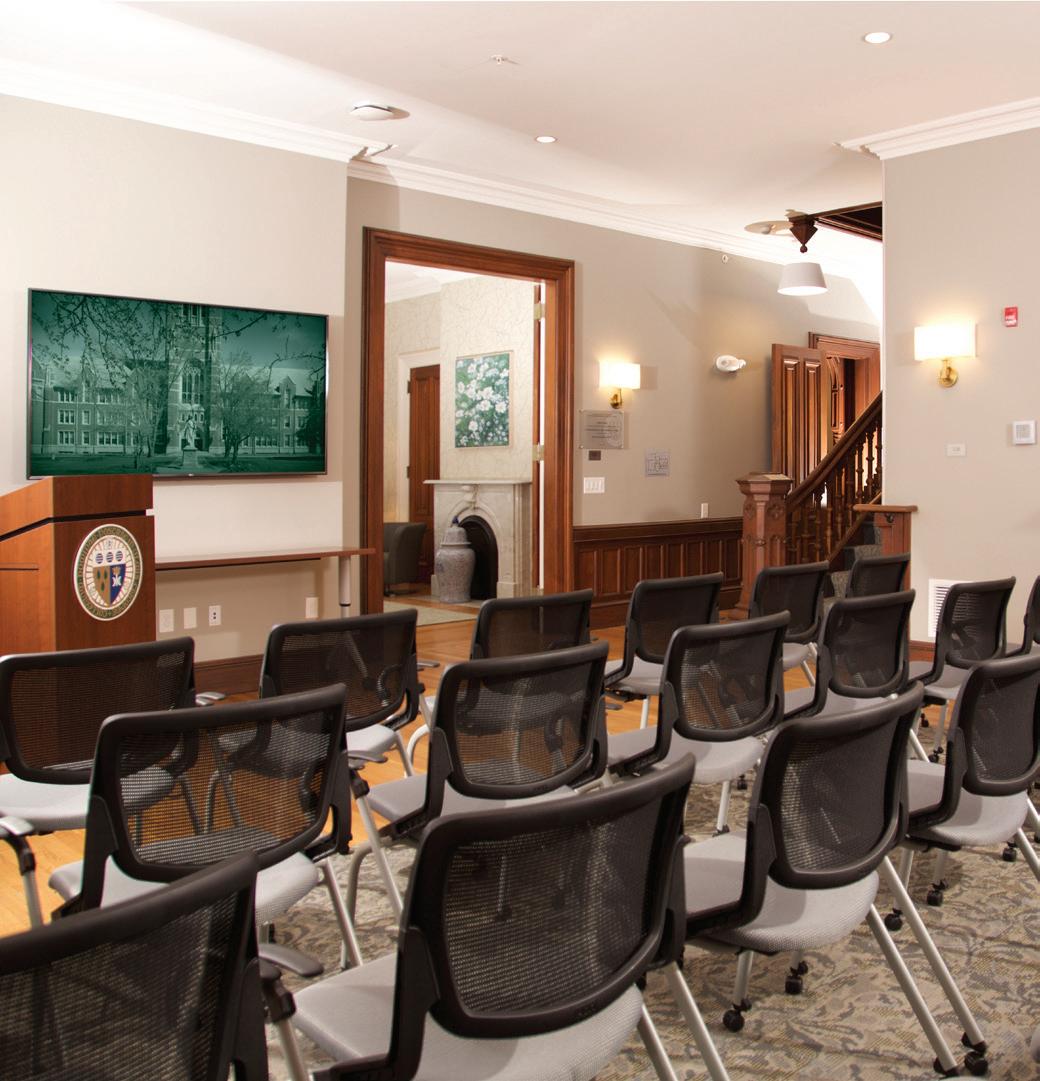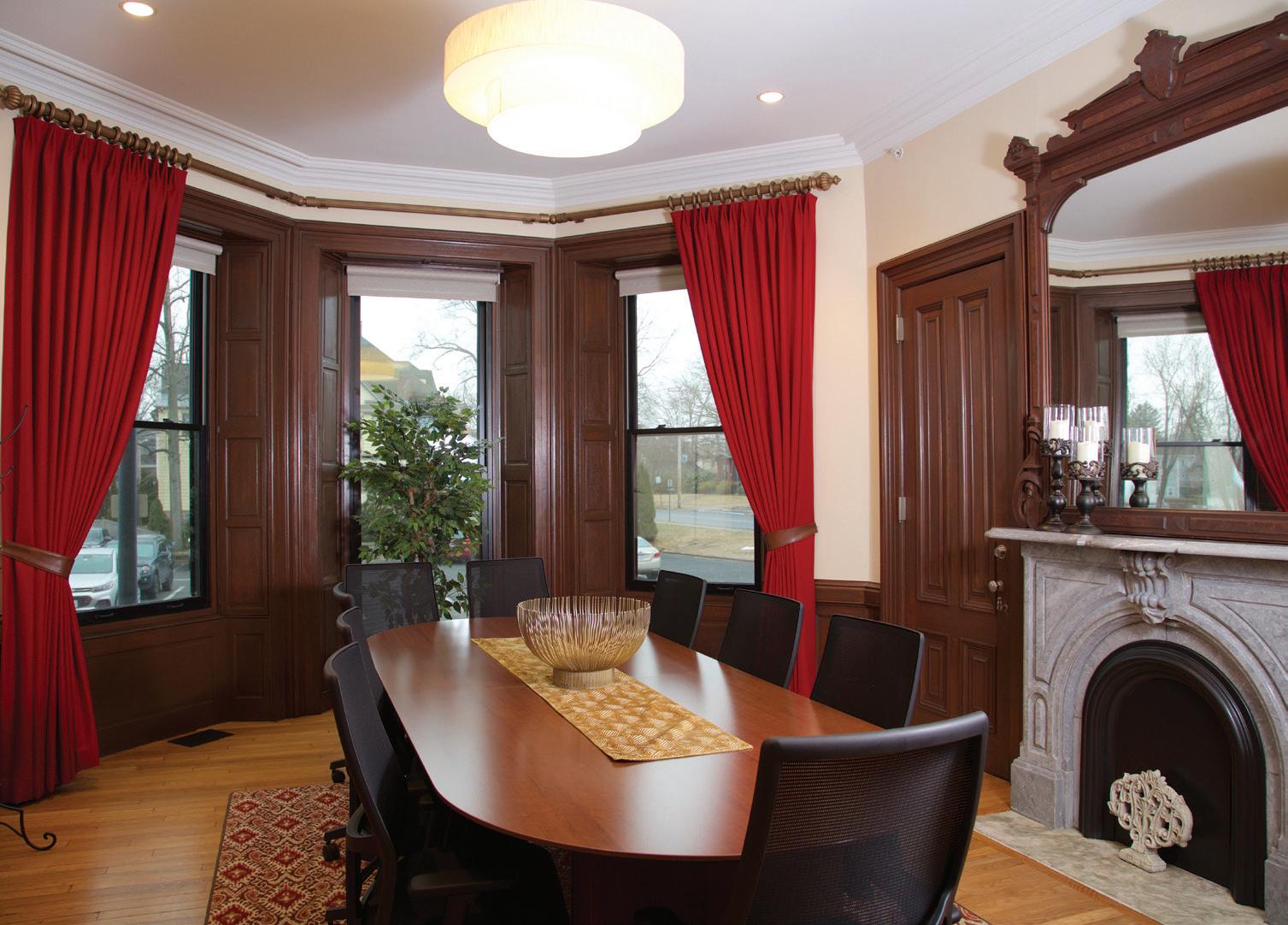
4 minute read
Former Mansion to Boost Holistic Experience
from Spring 2020 Magazine
by Elms College

Officially opening the LLCCC are (l-r) VP of Finance Katie Longley, Trustee Chair Cynthia Lyons, President Harry Dumay, and Trustee The new Elms College Living-Learning, Community and Cultural Center. and Building and Grounds Committee Chair Melissa Gillis. New Center Boosts Holistic Elms Experience
A third-floor single bedroom.


The former library, one of the first-floor classroom/conference spaces.
Over the past 150 years the stately manor has been a private home, a residence hall, and a faculty center. But this winter the former Emerson Gaylord property received its most ambitious identity yet — as the Elms College Living-Learning Community and Cultural Center (LLCCC). A ribbon-cutting ceremony was held on February 13 to dedicate the revitalized Second Empire architectural gem at 199 Springfield Street, which serves as a gateway into the Elms College campus. The event was not only a celebration of the “labor of love” restoration, but also a recognition of the “many, many hands and many contributions” that made the project possible, said Elms College President Harry Dumay, Ph.D., MBA. The college received multiple generous donations — over $1.3 million — in support of the $4 million renovation. “Today represents the combination of strong leadership, vision, generosity, and faith in the future of this great institution, and supports our belief at Elms College that anything is possible,” said Board of Trustees Chair Cindy Lyons. Dr. Dumay described the concept of a living-learning community as “a place that brings together students with a common interest, a common purpose, to live, learn, and participate in the holistic experience that contributes to what Elms College offers in a unique way — what we call the Elms Plus.” “The man who built this home was a successful businessman, a tireless civic leader, and a self-made millionaire,” said Elms Trustee and project benefactor Eileen O’Leary Sullivan. “What more fitting use for this home than to house community and cultural events and living communities, and students who will change our future, as most Elms College students will.” Eileen O’Leary Sullivan O’Leary Sullivan spoke of her family’s close connection to Elms and the Gaylord Mansion, forged when her aunt, Sr. Eileen O’Neill, SSJ, was a student in the 1950s. “I’m grateful to Elms College for hosting us all those years back and hope that people experience the same kind of memories, and the same wonderful experiences that we had as a family and look to the future to what Elms gives all of us...the community, future students, and ourselves,” O’Leary Sullivan said.
The timing of the opening meant that the LLCCC was able to be utilized during the college’s initial response to the COVID-19 outbreak as housing for international students who remained on campus after the college transitioned to distance learning. In October 2017, the Board of Trustees approved a plan to restore the exterior of the mansion to its prior glory. For the interior, the main floor serves as space for cultural activities and community group gatherings, while the upper floors become residence space for postbaccalaureate and graduate students. Construction on the mansion began in fall 2018 with the restoration of the slate roof. The ambitious restoration plan also included the installation of accessibility features, such as an outside ramp on the side porch, accessible bathrooms on the first and second floor, and a wheelchair lift that provides access to the living spaces on the second floor. The historic manor also received upgraded electricity and plumbing, as well as wiring for Internet connectivity and a fire suppression system of sprinklers. Residents’ rooms also include smart desks that can convert to standing desks for ergonomic support. The mansion has been part of the Elms College campus since 1962, when it was purchased for $50,000. It was used as a residence hall in the 1950s and 1960s and later as faculty offices from 1991 to 2016. The building was deemed unsafe during that year and was closed. In October 2017, the Elms College Board of Trustees approved the ambitious plan to transform the upper floors into living space and its main floor into a welcoming space for cultural activities and community gatherings.


First-floor lounge. 1856 - Emerson Gaylord purchases a house at the corner of Springfield Street and Fairview Avenue from H.H. Phetteplace.
Thank You to All Our Founding Donors
The George I. Alden Trust technology and academic furnishings
Chicopee Savings Charitable Foundation An Affiliate of Westfield Bank first floor meeting room
Francis and Marian Kirley first floor meeting room and reception area
M. Eleanor Murphy ’80 and Peter D. Crisci first floor
Edward J. O’Leary and Family first floor meeting room and third floor bedroom
Dr. Kathleen M. Riordan ’67 first floor meeting room
The Roncari Family second floor common area and third floor living room
Elizabeth and Robert Knight in honor of the Knight Family
Anthony Kolish in honor of Lucille T. Kolish and Judith Kennedy ’59
Elaine Kolish in honor of Lucille T. Kolish and Judith Kennedy ’59
Theresa M. Kolish and Thomas Bergin in honor of Lucille T. Kolish and Judith Kennedy ’59






